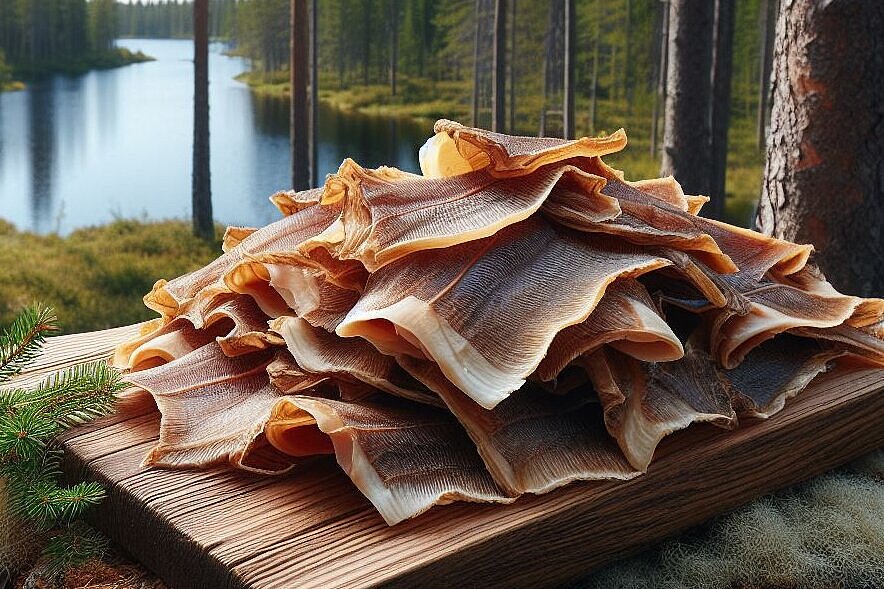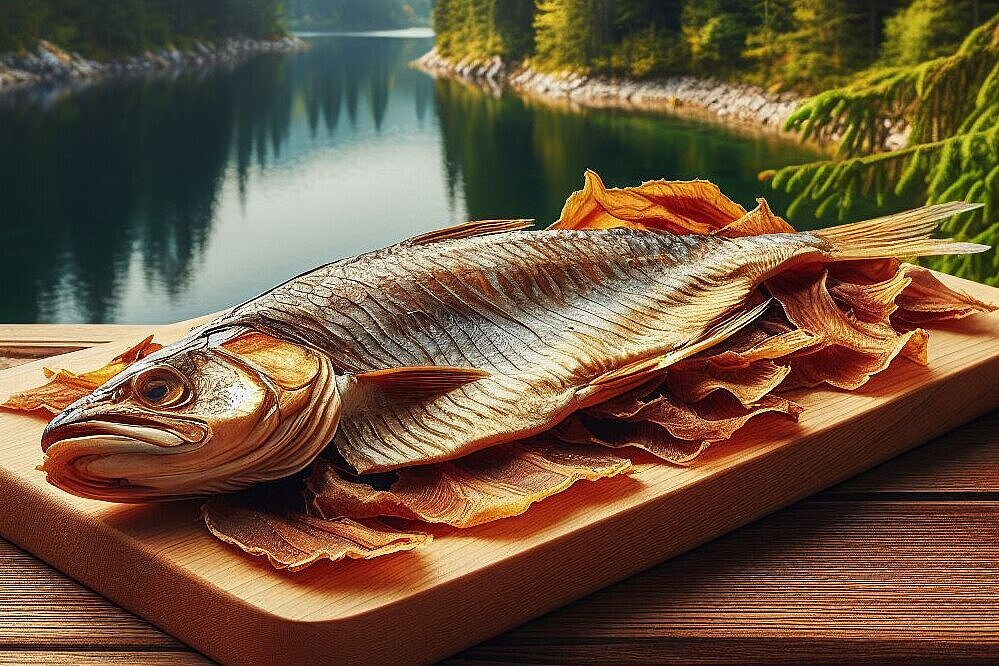Salmon skin

What is salmon skin?
Salmon skin is exactly what it sounds like - the skin of the salmon. After the salmon has been processed for human consumption, the skin is often removed and can then be further processed to serve as a treat or ingredient in dog food. Salmon skin is rich in protein and omega-3 fatty acids, which can make it an interesting addition to your dog's diet.
Benefits of salmon skin for dogs
Rich in omega-3 fatty acids
Omega-3 fatty acids are essential for your dog's health. They contribute to healthy skin, promote a shiny coat and support cognitive function and joint health. Salmon skin is an excellent natural source of these fatty acids.
Natural dental care
Chewing on salmon skin can contribute to natural dental care. The texture of the skin helps to remove plaque and tartar, leading to a healthier set of teeth.
Hypoallergenic
For dogs with food allergies or sensitivities, salmon skin can be a good option. It is naturally hypoallergenic and therefore less likely to trigger allergic reactions.
High protein content
Protein is an essential part of a dog's diet, and salmon skin is an excellent source of protein. This supports muscle building and overall health.
Disadvantages of salmon skin
Heavy metal contamination
As with all marine products, there is a risk of salmon skin being contaminated with heavy metals such as mercury. It is important to purchase salmon skin from trusted sources that test for purity and safety.
Overfeeding
Salmon skin is nutritious, but also high in calories. Overfeeding can lead to weight gain and other health problems. It is important to keep an eye on portion size.
Digestive problems
Some dogs can be sensitive to salmon skin, especially when it is first introduced. This can lead to digestive problems such as diarrhea. A gradual introduction is recommended.
Sustainability concerns
The sustainability of the fishery from which the salmon skin is sourced is also an important factor. It is advisable to choose products that come from sustainable sources.
Salmon skin can be a healthy and nutritious addition to your dog's diet, provided it is used responsibly. The benefits, such as supporting skin and coat health and promoting a healthy set of teeth, are considerable. However, it's important to consider the potential downsides and ensure that salmon skin comes from safe and sustainable sources. With the right approach, salmon skin can be a valuable addition to your four-legged friend's diet.
If you notice any signs of hypersensitivity or poisoning in your dog, you should see your vet immediately. We are not a substitute for a vet, but we try to be as accurate as possible. Every dog reacts differently and we recommend you get a second opinion or consult your vet if in doubt.
Stay healthy and take good care of your four-legged friend!😊
Similar to Salmon skin
Halibut skin is the outer layer that covers halibut, a large flatfish known for its white, firm flesh. The skin of this fish is thick and, similar to other fish species, can be eaten both raw and...
Cod skin has several benefits for dogs that you should know about: Cod skin is rich in protein, which is important for muscle building, wound healing and the immune system. Protein is also a...
Haddock skin is, simply put, the outer layer that covers the haddock. While haddock itself is known for its tasty flesh, its skin is often overlooked, even though it offers a number of nutritional...
Fish skin is the outer layer of fish that protects them from injuries and pathogens. It consists of scales that vary in size and shape depending on the fish species. Fish skin contains many valuable...



